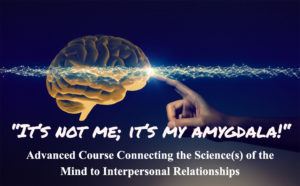Podcast: Play in new window | Download (Duration: 51:42 — 35.7MB)
Subscribe: Apple Podcasts | Spotify | Amazon Music
Bring attachment science to real-life, the Modern Attachment – Regulation Spectrum (and more)
These notes (not the image itself) were updated and added to June 2021.
Pausing the riches of the guest interviews, Ann Kelley & Sue Marriott are back to discuss what has changed in the attachment field. They share what makes it modern attachment, anyway, review the science, and discuss their Modern Attachment-Regulation Spectrum (MARS). They also cover best practices for getting through online therapy. Learn more at Therapist Uncensored www.therapistuncensored.com and get full shownotes here.
This episode references the Modern Attachment Regulation Spectrum created by Therapist Uncensored. Find out more about that in Episode 31 below.
TU31: Attachment on a Spectrum – Navigating Adult Insecurity and Security
Episode 126 Show Notes: Why learn attachment theory?
- Backed by over 70 years of clinical research in animals and people, founded and organized originally by seminal scholars like John Bowlby, Mary Main, Mary Ainsworth, Pat Crittenden, and a BOATLOAD of other researchers and clinicians working on developing and fine-tuning attachment science.
- At its core, attachment theory is the study of how the child attaches to the primary caregiver and how those experiences shape the child’s development
- Often this gets lumped together with a gendered understanding of the world, but it’s a totally gender-neutral science. Anyone can be or become a primary caregiver, even if the primary parent is often referred to as the mother. Also, much of the science surrounds mothers rather than fathers and non-traditional families, culturally-imbued Western notions of parenting, but more on that at another time.
What is Modern Attachment?
- Attachment research started in developmental psychology then expanded into many different complementary fields of research. Basically it went from looking at infants and toddlers, then dyads, then adults, then adult dyads, and now informing adults with multiple partners, groups and communities. Each perspective varies a bit but eventually coalesce to create a coherent and validated picture of the importance of early relationships in our adult relational lives.
- Briefly, the first phase of attachment science included the probably familiar 3 then the 4 quadrants – preoccupied, dismissing, secure and disorganized/unresolved (the language varies and mean slightly different things per perspective, but let's just settle on those commonly understood terms). This research began by looking at infants, and then mothers and infants. John Bowlby and his colleague, Mary Ainsworth, are the biggest players here although they were supported by many, we go over this history in much more detail in other episodes on our podcast.
- The science later incorporated research from adults with retrospective stories about their early life experiences that validated and expanded the theory. Mary Main, Carol George, Patricia Crittendon (we are wildly fortunate that several luminary's listed below have been expert guests on our show. Crittendon has 2, and 1 devoted to expanding on her work) are leaders in this area, and Alan Sroufe and his team at the University of Minnesota extended and clarified these ideas by following a cohort from infancy through adulthood (our good fortune includes many of those mentioned in these notes – and there are 2 interviews with Sroufe in our podcast catalog). Sroufe's work validates that early experience sets a developmental trajectory to adulthood, but – fortunately – are changeable.
- Social scientists expanded the ideas by looking at adult romantic couples. They also confirmed that early attachment patterns are not totally correlated with adult functioning, and exemplify how. See R. Chris Fraley, Hazan and Shaver and many more.
- Modern attachment science also incorporates the explosion of neuroscience that began to grow in the 1990s. It has always been a biologically informed theory, but with interpersonal neuroscience, we can now literally see inside the developmental process and fine-tune and verify the evolving theory as go. With contributions from the likes of Dan Siegel (2 TU episodes in our catalog), Alan Shore, Bruce Perry (1 episode), Steve Porges (1 episode), Lou Cossolino (2 TU episodes), Ed Tronik, David Elliott (2 TU episodes), Dan Brown (1 in-depth episode), Dan Stern, … and a boatload of clinicians and scientists we bring this theory forward again with confidence of the tenants of the theory. Other huge players in expanding modern attachment from scientists to therapists to a more general population include Stan Tatkin (2 episodes), Bonnie Badenoch (1 episode), Tina Payne-Bryson (2 episodes), Deb Dana (1 episode), Bruce Ecker (1 episode), Kristin Neff (1 episode)
- Alan Schore first coined the term “Modern Attachment,” and has published and taught extensively on this topic. His focus on the importance of the early right-to-right brain unconscious dance between the primary caregiver and child, affective co-regulation, and the development of the implicit sense of self led the way to integrate burgeoning neuroscience with attachment theory. His work continues and is revered. It is also highly complex, even for seasoned therapists.
- Your hosts of Therapist Uncensored, Sue Marriott and Ann Kelley amplify the cumulative and highly complex science above and translate it so the life-changing theory and research is available to those who would not otherwise know about it, or what to do with it. We focus specifically on the clinical and real-life application so the theory becomes useful to a wide range of people, in and out of therapy or universities. We developed the Modern Attachment- Spectrum as a model to help convey these ideas.
- Ann and Sue also specifically move away from a focus on disorder and pathology to a more compassionate, and accurate, focus on adaptation. Symptoms as solutions. They have also added a specific focus on context, including culture, power, race and class perspectives so that the unconscious white Western bias of a theory that is over 70 years old can be recognized. This model will continually update as new perspectives emerge, and they invite reflection on attachment theory from any marginalized group perspective.
More on the evolving understanding of the mind and relationships and modern attachment
- Importantly, our brains double in size very quickly after birth, and all that growth is constantly shaped and changed by our interactions. Your felt sense of your body learns am I safe, is my environment safe, and is my caregiver safe.When those early experiences with the caregiver go well, you’ll always have a healthy network hardwired into your body.
- Fortunately, no matter who you are and at any age, your mental models aren't set in stone – they definitely can change. Deep personal exploration and new safe bottom-up emotional experiences can literally re-wire your brain, change your mind… and help build a new, healthy attachment system.
Let’s talk about online therapy (ok so we got distracted… sorry 🙂
- Online therapy is hard. It’s hard on the therapist just as much as it’s hard on the client. Neither person can feel as deeply the body based reactions that are so key to our non-verbal communication
- So what can we do about it? And how do we integrate modern attachment theory into an online environment? Try embracing the differences of an online environment instead of trying to ignore them. Experiment with different camera set ups and feedback techniques to really ensure as deep of an interpersonal connection as you can. Pick different words to describe emotions and feelings. Or try making more explicit asks of each other during your session.
- All in all, be true to yourself and take risks to explore the new online environment, and continue to be patient with yourself and the world around you
More content like this on Therapist Uncensored podcast:
It's Not Me It's My Amygdala – Advanced Course Connecting the Sciences of the Mind to Everyday Relationships
FOUR hours of quality content and 3 CE's available to professionals. Since you are this deep into our shownotes, then you are indeed one of our peeps and thus invited to be part of our clan 🙂 GET 10% off this signature course by using code OURCLAN! –
And tons of free episodes:
TU79: Attachment Spectrum and the Nervous System, Quick Review with Updates
TU79: Attachment Spectrum and the Nervous System, Quick Review with Updates
Neuroscience of Psychotherapy Episode 36, with guest Dr. Lou Cozolino
It’s Not Crazy It’s a Solution to an Unsolvable Problem – Disorganized Attachment Episode 61















